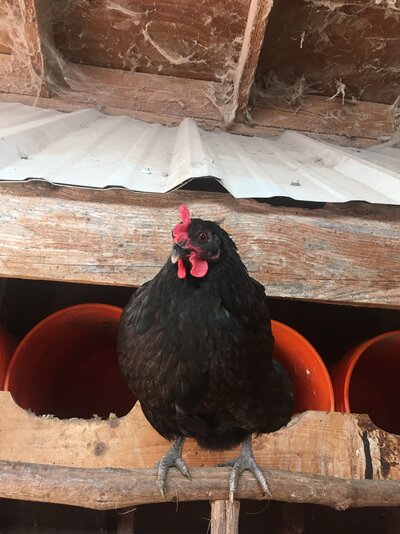bjdewell
Songster
I had two sick hens, Betsy and Coco, both 9-months old, both had diarrhea and purplish/light colored combs and wattles, although they were not acting any differently. Still eating, drinking, playing in the yard, taking dust baths, interacting well with me and each other, etc. First Betsy was sick, then later, Coco. (I have four hens, the other two didn't get sick.)
Betsy was taken to the vet and diagnosed with a respiratory infection, and I started dosing her with Enroflox on November 3, 2022, for 7 days. She is now doing fine.
Then two weeks later Coco started with the symptoms, the vet said it sounded like the same infection and I picked up another Rx and started Enroflox on November 17, 2022. But I'm worried about Coco, she hasn't regained her red comb and wattles like Betsy did.
I purchased Baytril online to keep on hand, just in case.
Now I'm noticing that Coco's face looks weird. She is molting and losing feathers, seems to be the first of my four hens to molt this time, and I'm wondering: Does her face look like she's molting, or does it look like some sort of disease or infestation?
She is still eating and drinking, free ranges in the backyard scratching, pecking, eating bugs, rests, takes dust baths, etc., along with the others as she has always done. I'm not sure if she's laying right now, but out of my four, I'm only getting two eggs a day, and it's hard to tell who is laying when, only one hen lays eggs that look different from the others.
One of the hens also has diarrhea sometimes, watery white with a bit of brown poop, and I think it's Coco. Usually that's the first large morning poop. I've been following them around in the morning to see who it is, but can't catch anyone leaving poop that isn't normal looking. So I'm guessing that it's Coco.
I've been giving them scrambled eggs in the afternoon for the last week, along with Healthy Gut Probiotic for Poultry, which I sprinkle on the scrambled eggs.
I was able to get some good photos of Coco's face, they are below. For reference is a photo of Annie with the normal red color of their combs/wattles. I'm not sure Coco has ever had that robust of an appearance, is it possible she is just not able to produce that much red?
Does anyone have ideas or suggestions? Coco's really hard to catch; she used to be my friendliest hen, but after the Baytril doses, she scoots away from me. (But Betsy is now my best friend!)
Which reminds me… has anyone purchased a net for catching a hen when needed? I don't want to do that, it would be pretty scary for them, but if I need to take her to the vet again, I have to be sure I can catch her.
Thanks so much for any help! And for all the help and advice I've already received and/or read about on this Forum. You all ROCK!
Betsy was taken to the vet and diagnosed with a respiratory infection, and I started dosing her with Enroflox on November 3, 2022, for 7 days. She is now doing fine.
Then two weeks later Coco started with the symptoms, the vet said it sounded like the same infection and I picked up another Rx and started Enroflox on November 17, 2022. But I'm worried about Coco, she hasn't regained her red comb and wattles like Betsy did.
I purchased Baytril online to keep on hand, just in case.
Now I'm noticing that Coco's face looks weird. She is molting and losing feathers, seems to be the first of my four hens to molt this time, and I'm wondering: Does her face look like she's molting, or does it look like some sort of disease or infestation?
She is still eating and drinking, free ranges in the backyard scratching, pecking, eating bugs, rests, takes dust baths, etc., along with the others as she has always done. I'm not sure if she's laying right now, but out of my four, I'm only getting two eggs a day, and it's hard to tell who is laying when, only one hen lays eggs that look different from the others.
One of the hens also has diarrhea sometimes, watery white with a bit of brown poop, and I think it's Coco. Usually that's the first large morning poop. I've been following them around in the morning to see who it is, but can't catch anyone leaving poop that isn't normal looking. So I'm guessing that it's Coco.
I've been giving them scrambled eggs in the afternoon for the last week, along with Healthy Gut Probiotic for Poultry, which I sprinkle on the scrambled eggs.
I was able to get some good photos of Coco's face, they are below. For reference is a photo of Annie with the normal red color of their combs/wattles. I'm not sure Coco has ever had that robust of an appearance, is it possible she is just not able to produce that much red?
Does anyone have ideas or suggestions? Coco's really hard to catch; she used to be my friendliest hen, but after the Baytril doses, she scoots away from me. (But Betsy is now my best friend!)
Which reminds me… has anyone purchased a net for catching a hen when needed? I don't want to do that, it would be pretty scary for them, but if I need to take her to the vet again, I have to be sure I can catch her.
Thanks so much for any help! And for all the help and advice I've already received and/or read about on this Forum. You all ROCK!
Attachments
-
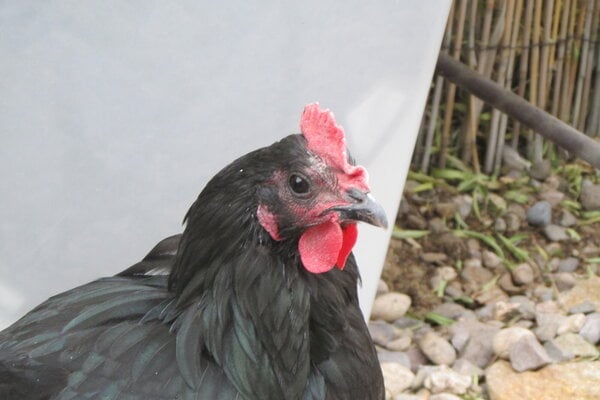 Coco.JPG317.3 KB · Views: 20
Coco.JPG317.3 KB · Views: 20 -
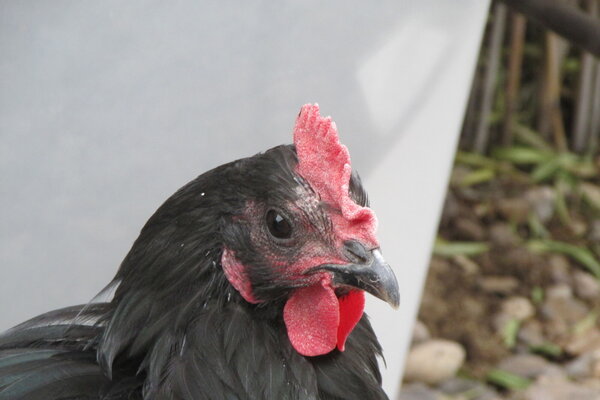 Coco's rightside face with molting - question.JPG312.1 KB · Views: 5
Coco's rightside face with molting - question.JPG312.1 KB · Views: 5 -
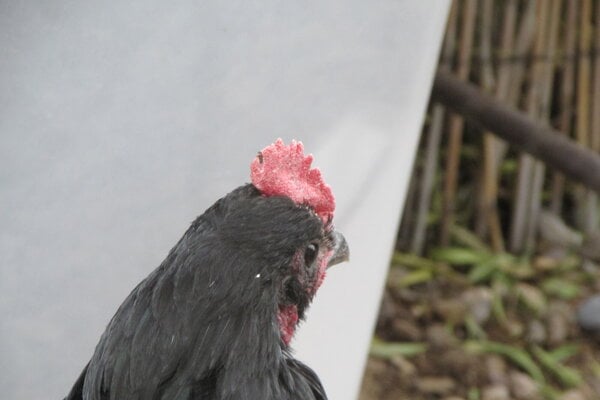 Coco's discolored comb.JPG284.8 KB · Views: 5
Coco's discolored comb.JPG284.8 KB · Views: 5 -
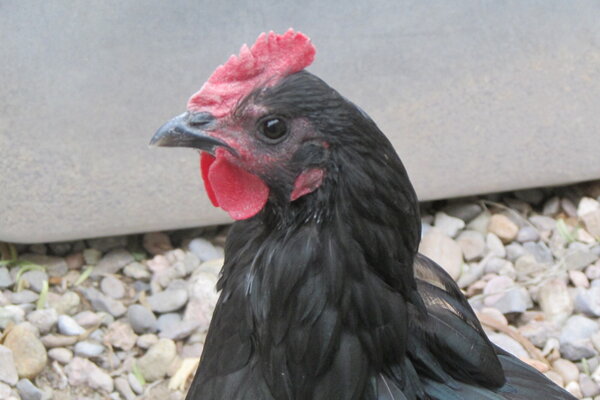 Coco's leftside face with molting 2 - question - discolored comb.JPG309.7 KB · Views: 5
Coco's leftside face with molting 2 - question - discolored comb.JPG309.7 KB · Views: 5 -
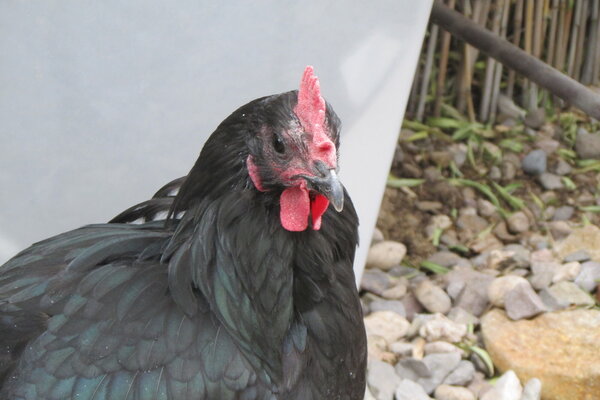 Coco's rightside face with molting 2 - question.JPG341.2 KB · Views: 5
Coco's rightside face with molting 2 - question.JPG341.2 KB · Views: 5 -
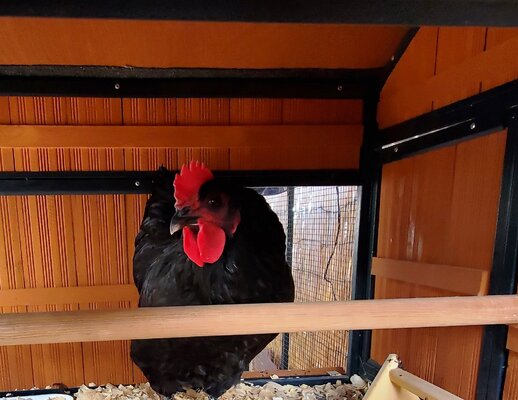 Annie July 2022.jpg490.7 KB · Views: 5
Annie July 2022.jpg490.7 KB · Views: 5




